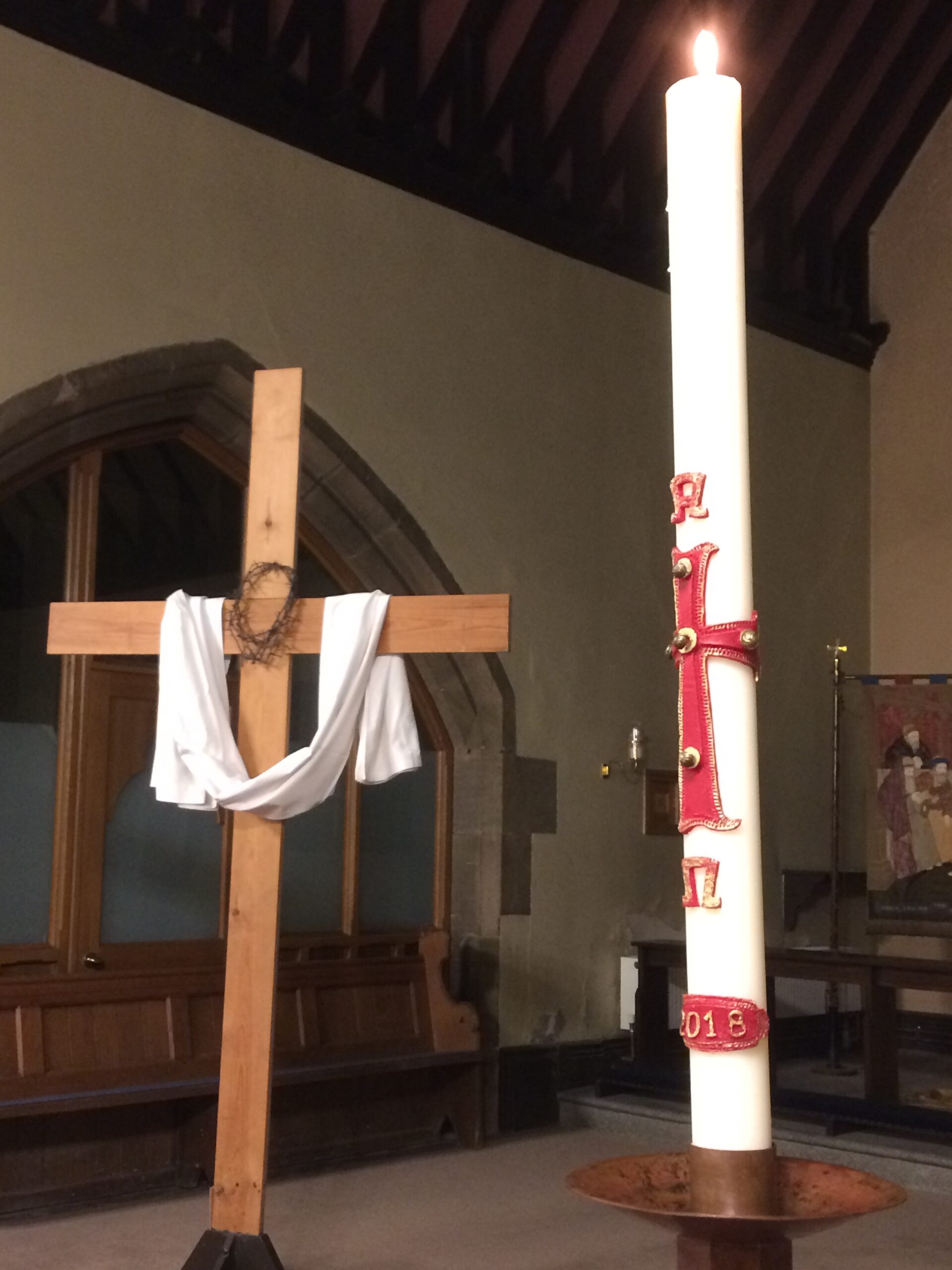
Watch this week's service on YouTube
Download the order of service here: 24 03 30 Easter Vigil
Read this week's Church News


Watch this week's service on YouTube
Download the order of service here: 24 03 30 Easter Vigil
Read this week's Church News
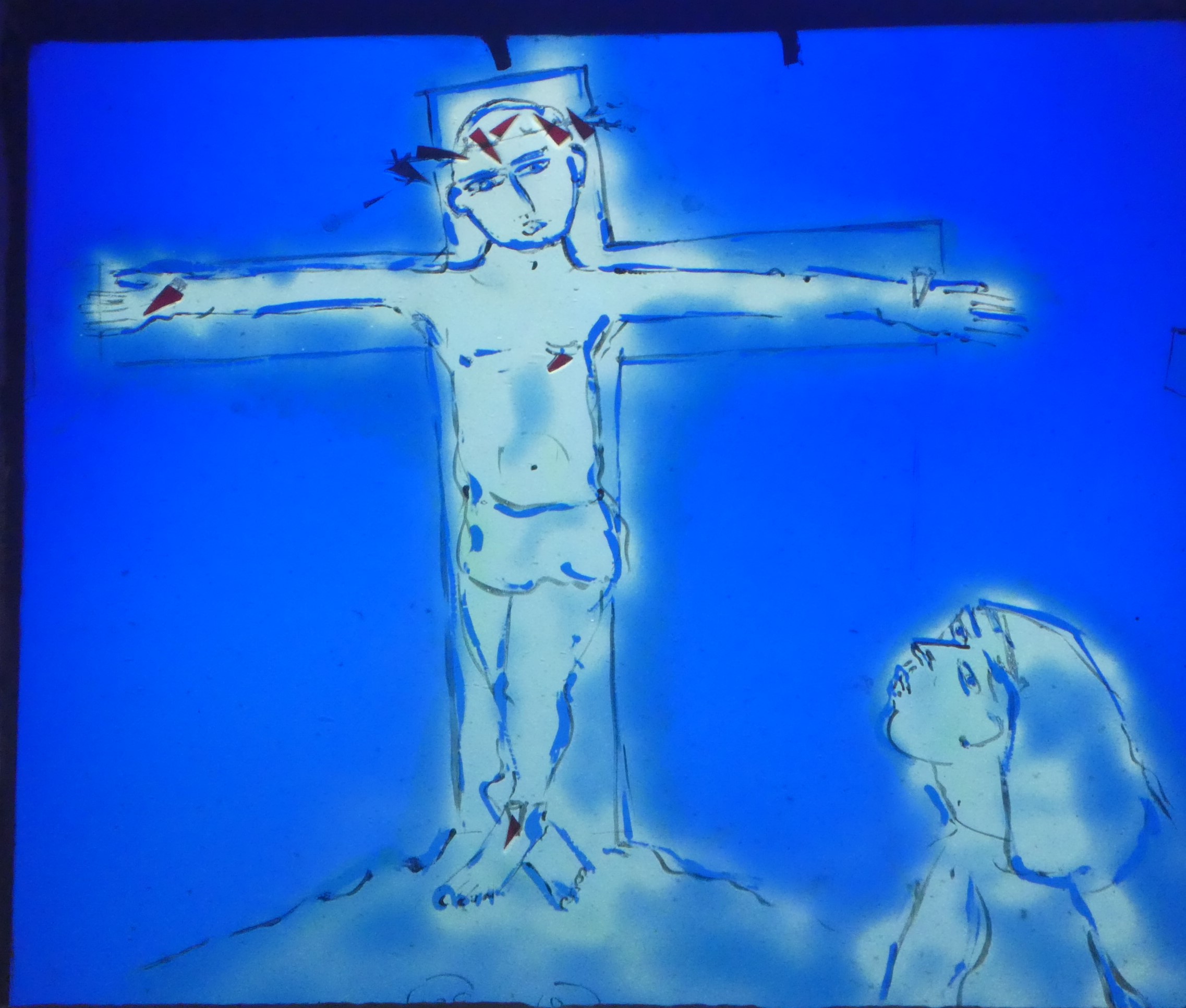
Watch this week's service on YouTube
Download the order of service here: 24 03 29 Good Friday
Read this week's Church News
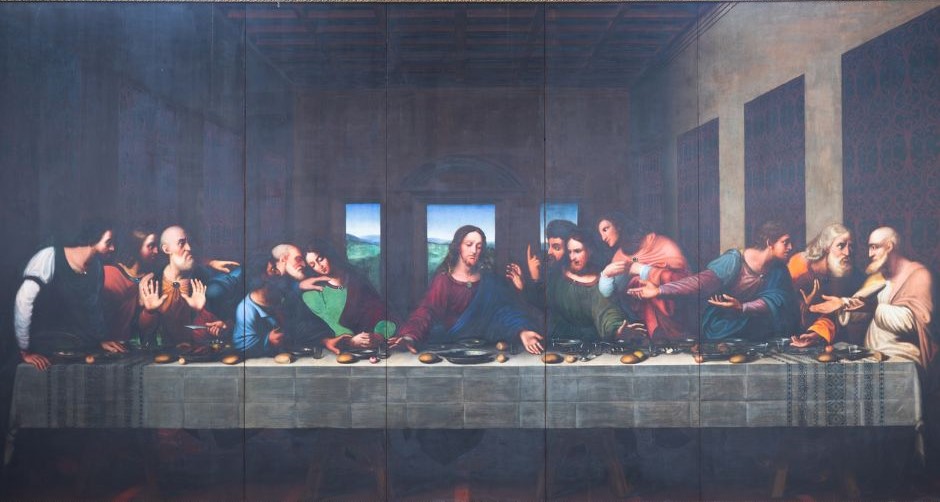
Watch this week's service on YouTube
Download the order of service here: 24 03 28 Maundy Thursday Eucharist
Read this week's Church News
The Readings
Exodus 12.1-4
The Lord said to Moses and Aaron in the land of Egypt: This month shall mark for you the beginning of months; it shall be the first month of the year for you. Tell the whole congregation of Israel that on the tenth of this month they are to take a lamb for each family, a lamb for each household. If a household is too small for a whole lamb, it shall join its closest neighbour in obtaining one; the lamb shall be divided in proportion to the number of people who eat of it.
John 13.1-17, 31b-35
Now before the festival of the Passover, Jesus knew that his hour had come to depart from this world and go to the Father. Having loved his own who were in the world, he loved them to the end. The devil had already put it into the heart of Judas son of Simon Iscariot to betray him. And during supper Jesus, knowing that the Father had given all things into his hands, and that he had come from God and was going to God, got up from the table, took off his outer robe, and tied a towel around himself. Then he poured water into a basin and began to wash the disciples’ feet and to wipe them with the towel that was tied around him. He came to Simon Peter, who said to him, ‘Lord, are you going to wash my feet?’ Jesus answered, ‘You do not know now what I am doing, but later you will understand.’ Peter said to him, ‘You will never wash my feet.’ Jesus answered, ‘Unless I wash you, you have no share with me.’ Simon Peter said to him, ‘Lord, not my feet only but also my hands and my head!’ Jesus said to him, ‘One who has bathed does not need to wash, except for the feet, but is entirely clean. And you are clean, though not all of you.’ For he knew who was to betray him; for this reason he said, ‘Not all of you are clean.’
After he had washed their feet, had put on his robe, and had returned to the table, he said to them, ‘Do you know what I have done to you? You call me Teacher and Lord—and you are right, for that is what I am. So if I, your Lord and Teacher, have washed your feet, you also ought to wash one another’s feet. For I have set you an example, that you also should do as I have done to you. Very truly, I tell you, servants are not greater than their master, nor are messengers greater than the one who sent them. If you know these things, you are blessed if you do them.
Jesus said, ‘Now the Son of Man has been glorified, and God has been glorified in him. If God has been glorified in him, God will also glorify him in himself and will glorify him at once. Little children, I am with you only a little longer. You will look for me; and as I said to the Jews so now I say to you, “Where I am going, you cannot come.” I give you a new commandment, that you love one another. Just as I have loved you, you also should love one another. By this everyone will know that you are my disciples, if you have love for one another.’
Scripture Quotations are from: New Revised Standard Version Bible: Anglicized Edition, copyright © 1989, 1995 National Council of the Churches of Christ in the United States of America. Used by permission. All rights reserved worldwide. http://nrsvbibles.org
The Sermon
By the Revd Canon Dr Alan Billings.
In most of the Church’s liturgies there is usually a dominant mood. On
Christmas Day, it is one of great joy: ‘A Saviour has been born to us.’ It will be
the same at Easter: ‘The Lord is risen.’ At the other end of the emotional
scale is, tomorrow, Good Friday. We shall be sombre and sad.
But tonight, Maundy Thursday, we scarcely know how to react emotionally.
The vestments are white, which suggests joy and celebration. Yet we know
that this was the night of betrayal, when the Lord is delivered up into the
hands of wicked men. By this time tomorrow, he will have died an
unspeakable death. Perhaps all we can be is thoughtful.
For this is no ordinary night, but a time of crisis for Jesus and his friends.
Things are coming to a head, and knowing that, Jesus uses this night to give
the disciples two signs, two acted parables if you like, that will sum up all that
he taught them and serve to bind them closer to one another. The two signs
are first the bread and wine, and second the foot-washing. Let me say a word
about the second – the washing.
We say, rightly, that if we are to call ourselves Christians we must be willing to
wash the feet of others - to serve our brother or sister in need, in any way we
can. Just as Jesus on this night took a towel and a basin of water and did
what the slave of the household would do: he washed the feet of those who
came through the front door – feet made grimy and sweaty from walking
through dusty streets. There could not be a more welcome or more menial
task.
The sign is one of humility and service. The followers of Jesus are called to
wash the feet of others. But this is not all that he intended by it.
Peter protested when Jesus approached him. Then he tried to get Jesus to
wash his hands and head as well. And Jesus says, No. A man who has
bathed needs no further washing. So what is going on here?
Our attention now shifts from what the slave does – washes feet – to the
symbol of the water itself. Water makes clean, and Jesus is concerned with
making clean, not in a physical sense – which is what Peter is thinking - but in
a spiritual sense. Washing in this sense is about the need for forgiveness.
Jesus recognises that all human groups - including his disciple group – all
human groups will come to grief if they do not understand that they have to
become communities of mutual forgiveness. Because every human group –
families, friends, colleagues, church – is a site for jealousies, resentments
and hurts. If the disciples of Jesus do not learn how to deal with that, they will
fall apart. This is what Jesus means when he says, ‘Love one another’:
because forgiving lies at the heart of loving.
But it’s demanding, more demanding, perhaps, than being of service to
others. And we can understand just how demanding if we see what happens
to two of the disciples – Judas and Peter – over these days.
People sometimes say after someone has been wronged or hurt, ‘You must
forgive and forget’. That is not what Jesus is asking for. Quite the contrary. He
does not ask us to forget because that is really an invitation to trivialise
whatever has happened, and to fail to take someone, and what they have
done, seriously. To say you must forget is like saying, ‘It’s alright. I’m actually
not that bothered.’
There can be no forgetting – because once something is done it cannot be
undone – and hurts and betrayals can be enormously destructive and on-
going. There is little we can do about that. But the guilt and the danger of on-
going resentment can be dealt with. It needs one person to be able to say,
‘This is what I have done and I am very sorry’, and the other to say in effect,
‘This is what you did, I cannot forget that, but because you are sorry, I can
forgive you; and the reason I can forgive you is because I too am a sinner
who also needs forgiveness.’
After this night, Peter and Judas, who both betray the Lord, though in different
ways, face what they have done. Peter weeps bitterly. Judas is filled with
remorse. They both know that what is done cannot be undone and will never
be forgotten. The Lord stands ready to forgive both. But while Peter can ask
for forgiveness and is restored, Judas lacks the courage to ask. His remorse
turns inwards and becomes self-pity – and he goes and hangs himself.
Every Christian congregation is called tonight to remember the two symbols –
the bread and the wine and the washing. But part of that washing is about
spiritual cleansing, becoming a mutually forgiving community of people. That
way, the hurts we do to one another, that always threaten to blight the groups
we belong to, will become not stopping points but starting points in our
journey to spiritual maturity and the kingdom of God.
Prayers of Intercession
In the power of the Spirit let us pray to the Father
through Christ the saviour of the world.
Father,
on this, the night he was betrayed,
your Son Jesus Christ washed his disciples’ feet.
We commit ourselves to follow his example of love and service.
Lord, hear us
and humble us.
On this night, he prayed for his disciples to be one.
We pray for the unity of your Church.
Lord, hear us
and humble us.
On this night, he prayed for those who were to believe through his disciples’ message.
We pray for the mission of your Church.
Lord, hear us
and humble us.
On this night, he commanded his disciples to love,
but suffered rejection himself.
We pray for the rejected and unloved.
Lord, hear us
and humble us.
On this night, he reminded his disciples
that if the world hated them it hated him first.
We pray for those who are persecuted for their faith.
Lord, hear us
and humble us.
On this night, he accepted the cup of death
and looked forward to the new wine of the kingdom.
We remember those who have died in the peace of Christ.
Lord, hear us
and welcome all your children into paradise.
Common Worship: Times and Seasons, material from which is used here is copyright (c) 2010 The Archbishops' Council

Watch this week's service on YouTube
Download the order of service here: 24 03 24 Palm Sunday Eucharist
Read this week's Church News
The Readings
Philippians 2.5-11
Let the same mind be in you that was in Christ Jesus,
who, though he was in the form of God,
did not regard equality with God
as something to be exploited,
but emptied himself,
taking the form of a slave,
being born in human likeness.
And being found in human form,
he humbled himself
and became obedient to the point of death—
even death on a cross.
Therefore God also highly exalted him
and gave him the name
that is above every name,
so that at the name of Jesus
every knee should bend,
in heaven and on earth and under the earth,
and every tongue should confess
that Jesus Christ is Lord,
to the glory of God the Father.
Scripture Quotations are from: New Revised Standard Version Bible: Anglicized Edition, copyright © 1989, 1995 National Council of the Churches of Christ in the United States of America. Used by permission. All rights reserved worldwide. http://nrsvbibles.org
The Prayers
We stand with Christ in his suffering.
For forgiveness for the many times we have denied Jesus,
let us pray to the Lord.
Lord, have mercy.
For grace to seek out those habits of sin which mean spiritual death,
and by prayer and self-discipline to overcome them,
let us pray to the Lord.
Lord, have mercy.
For Christian people,
that through the suffering of disunity
there may grow a rich union in Christ,
let us pray to the Lord.
Lord, have mercy.
For those who make laws, interpret them, and administer them,
that our common life may be ordered in justice and mercy,
let us pray to the Lord.
Lord, have mercy.
For those who still make Jerusalem a battleground,
let us pray to the Lord.
Lord, have mercy.
For those who have the courage and honesty to work openly for justice and peace,
let us pray to the Lord.
Lord, have mercy.
For those in the darkness and agony of isolation,
that they may find support and encouragement,
let us pray to the Lord.
Lord, have mercy.
For those who, weighed down with hardship, failure, or sorrow, feel that God is far from them,
let us pray to the Lord.
Lord, have mercy.
For those who are tempted to give up the way of the cross,
let us pray to the Lord.
Lord, have mercy.
That we, with those who have died in faith,
may find mercy in the day of Christ,
let us pray to the Lord.
Lord, have mercy.
Holy God,
holy and strong,
holy and immortal,
have mercy upon us.
Common Worship: Times and Seasons, material from which is used here is copyright (c) 2010 The Archbishops' Council

Watch this week's service on YouTube
Download the order of service here: 24 03 17 5th Sunday of Lent - Passiontide Eucharist
Read this week's Church News
The Readings
Hebrews 5.5-10
So also Christ did not glorify himself in becoming a high priest, but was appointed by the one who said to him,
‘You are my Son,
today I have begotten you’;
as he says also in another place,
‘You are a priest for ever,
according to the order of Melchizedek.’
In the days of his flesh, Jesus offered up prayers and supplications, with loud cries and tears, to the one who was able to save him from death, and he was heard because of his reverent submission. Although he was a Son, he learned obedience through what he suffered; and having been made perfect, he became the source of eternal salvation for all who obey him, having been designated by God a high priest according to the order of Melchizedek.
John 12.20-33
Now among those who went up to worship at the festival were some Greeks. They came to Philip, who was from Bethsaida in Galilee, and said to him, ‘Sir, we wish to see Jesus.’ Philip went and told Andrew; then Andrew and Philip went and told Jesus. Jesus answered them, ‘The hour has come for the Son of Man to be glorified. Very truly, I tell you, unless a grain of wheat falls into the earth and dies, it remains just a single grain; but if it dies, it bears much fruit. Those who love their life lose it, and those who hate their life in this world will keep it for eternal life. Whoever serves me must follow me, and where I am, there will my servant be also. Whoever serves me, the Father will honour.
‘Now my soul is troubled. And what should I say—“Father, save me from this hour”? No, it is for this reason that I have come to this hour. Father, glorify your name.’ Then a voice came from heaven, ‘I have glorified it, and I will glorify it again.’ The crowd standing there heard it and said that it was thunder. Others said, ‘An angel has spoken to him.’ Jesus answered, ‘This voice has come for your sake, not for mine. Now is the judgement of this world; now the ruler of this world will be driven out. And I, when I am lifted up from the earth, will draw all people to myself.’ He said this to indicate the kind of death he was to die.
Scripture Quotations are from: New Revised Standard Version Bible: Anglicized Edition, copyright © 1989, 1995 National Council of the Churches of Christ in the United States of America. Used by permission. All rights reserved worldwide. http://nrsvbibles.org
The Sermon
By Joe, Reader at St Mary's.
May I speak in the name of the Father, Son and Holy Spirit. Amen.
Please be seated.
Today’s reading from John presents us with a critical moment in
Jesus’s journey towards His passion – and in our Lenten journey
alongside of him. Previously in John 12, we’ve seen him raise Lazarus
from the dead, and come into Jerusalem for Passover on the back of
a young donkey. We’ve also seen how the news of this action
spreads amongst the people. And in the background, the Pharissee’s
who’ve been plotting how to get rid of this VERY turbulent priest, are
having to up their game.
Our reading from John begins with some Greeks seeking Jesus,
signalling that His message is for all humanity, not just the Jewish
people. Word of this great teacher has clearly spread outside Jewish
circles; one can see why the Pharisees are getting worried. But when
they’re introduced to Jesus by Andrew and Phillip, they must have
been surprised to find Jesus contemplating his own death. This
moment is a turning point, not only in Jesus' earthly ministry but also
in the understanding of what it means to follow Him. This passage,
alongside Hebrews 5:5-10, asks us to think on Jesus’ mission, His
obedience to God, and the path He lays out for His followers.
As is so often the case in His teachings, Jesus uses a parable; a grain
of wheat must fall to the ground and die before it can grow in to a
stalk of wheat bearing many, many more seeds. It’s a paradox;
through death comes life, through surrender comes victory.
Jesus says:
“Those who love their life lose it, and those who hate their life in
this world will keep it for eternal life”
What does He mean here? I think He is telling us that if we love our
earthly life and all it’s trimmings, our possessions, our own way of
doing things – eventually all this will be lost to us when we die. But
should we choose to put less importance on our attachment to our
life in this world, we will benefit from the eternal life offered by
Christ’s teachings.
Jesus isn’t advocating some nihilistic dismissal of life; it’s precious.
But he emphasises a reorientation of priorities. Eternal life is to be
found in following Jesus, even if it leads to what the world considers
loss or even death.
When we ‘sign up’ to become a follower of Jesus, we are taking on a
massive commitment.
“Whoever serves me must follow me, and where I am, there will
my servant be also. Whoever serves me, the Father will
honour.”
His followers were being asked to be with Jesus – where He is, they
will be. And we know that this will eventually lead to the Garden of
Gethsemane, to Calvary, and ultimately to eternal life.
But this – the way of the cross – is a tough journey. Today, we may
not necessarily be being asked to go to death, but we are being
asked to put our own will and desires to one side and follow more
fully Jesus’s teachings.
This call to discipleship is a call to the way of the cross—a path of
sacrifice, service, and ultimate glorification.
Jesus goes on to his followers, and the Greeks – sharing himself with
Jew and Gentile.
“‘Now my soul is troubled. And what should I say—“Father,
save me from this hour”? No, it is for this reason that I have
come to this hour.”
Jesus knows what is coming, and he has a natural human aversion to
suffering and pain. But He remains steadfast in His obedience to His
Father. The voice from heaven that follows – heard by some
unbelievers as thunder - is not just for Jesus’ reassurance but for the
benefit of his followers. They are also being assured that Jesus' path
of suffering, and by implication their own, is indeed the path of
glorification ordained by God. The ones who hear thunder are not
yet on the path of following Christ.
In Hebrews 5:5-10, Christ's obedience, learned through suffering,
becomes the source of eternal salvation for all who obey Him and
follow His teachings.
Jesus, though He was the Son of God, was also fully human and did
not find submitting to the will of God easy. It involved suffering,
humiliation and death which because of His humanity scared Jesus.
“In the days of his flesh, Jesus offered up prayers and
supplications, with loud cries and tears, to the one who was
able to save him from death, and he was heard because of his
reverent submission.”
But He did obey, and in doing so became the perfect high priest for
our salvation. Jesus met the requirements of God’s plans for our
salvation through His obedience, and showed us the deep love of
God for us, and what is involved in following Him – a literal or
spiritual ‘death of self will’.
Jesus has no illusions as to what fate befalls him.
"And I, when I am lifted up from the earth, will draw all people to
myself."
The process of crucifixion starts with the cross on the ground and the
victim is secured to the cross, and then hoisted in to position. When
Jesus refers to his lifting up, he’s referring to the manner of his death
AND to His resurrection. This is the ultimate fulfillment of the
gospel's universal promise—the promise that in Jesus, all – jew and
Gentile - are invited into the family of God. It is no accident that
Greeks – gentiles – are specifically mentioned in this scripture.
Our readings today make it clear that being a disciple of Christ isn’t
easy.
Like the grain of wheat, we are called to die to ourselves—to our
desires, ambitions, and wills—in order to produce fruit in the
Kingdom of God by living lives of service, sacrifice and humility
following Jesus’s example.
Obedience to God often involves suffering. If the Son of God is
expected to suffer, we should expect nothing less in our own lives.
Like Jesus, we may be called to walk paths that are difficult and
painful – but that draw us closer to God, and allow us to share in
Jesus’s glorification.
As Christians, we need to be preaching the Gospel by the example of
our daily lives, to be seeds sown in the ground, dying to ourselves so
that we might bear much fruit for the Kingdom of God.
It’s not easy; but it’s what we’ve signed up for.
Amen.
The Prayers
Prepared by Kath.
God our Father, hear us when we pray to you faith. We give you thanks for this day, for our lives and the amazing world you have given us to live in. May we take the time to see and truly appreciate what we have. Help us to be good stewards and to look after it for this generation and the generations to come.
Lord, in your mercy,
Hear our prayer.
Father, we pray for your church throughout the world and for those of other faiths who worship you. May we find ways to live together peaceably and respectfully in your name.
We hold in our prayers all those who have suffered abuse within the church. For those deeply wounded and damaged by the actions of others and those whose faith and trust have been cruelly abused. Father, comfort all who suffer when old wounds are reopened and may they receive the kindness, patience and compassion they need to help them to heal.
We pray for all in our mission partnership giving thanks for the time, talents and gifts which our churches and communities benefit from. Today we pray for all here at St Mary’s as we undertake our APCM where we review what we have done and achieved over the past year and look to the year ahead of us. We give thanks for the work and dedication of all involved in the running of this church and our hall, especially members of the PCC, the various committees & groups and individuals who often work quietly behind the scenes to make St Mary’s the amazing place that it is. May they all know that they are appreciated.
Lord, in your mercy,
Hear our prayer.
We pray for our very troubled world and all peoples, especially those suffering because of wars, oppression, natural & human-made disasters, political & economic strife and great need for the basics of life. Father, guide us to know what is right and strengthen us to work together for it, so that everyone’s needs are met and we can live in peace. Bless all who strive for these things and support us in our efforts.
Especially we pray for people of all faiths in Gaza & Israel, the people of Haiti, the people of Nigeria and the people of Ukraine & Russia. Father, be with all who are courageous in standing against tyranny.
Lord, in your mercy,
Hear our prayer.
We pray for all who are ill and those who are nearing the end of their lives. May they receive the care, comfort and compassion they need. We pray for those who accompany them on their journey who also need to be supported.
By name we pray for Anne & Michael & their family, for Chris, for Rebecca and for Linda.
In a moment of quiet let us call to mind anyone known to us who is in special need of our prayers at this time and let us also pray for ourselves and our own concerns and needs.
Lord, in your mercy,
Hear our prayer.
We remember all who have died, some recently and some long ago. We pray that they are at peace and that those who love and miss them will be comforted and cared for in their grief. We give thanks for the lives of Alexei Navalny and Dave Myers.
Again in a short time of quiet let us remember those special to us who are no longer with us.
Lord, in your mercy,
Hear our prayer.
Merciful Father,
accept these prayers,
for the sake of your Son,
our saviour, Jesus Christ.
Amen.
Common Worship: Times and Seasons, material from which is used here is copyright (c) 2010 The Archbishops' Council

Watch this week's service on YouTube
Download the order of service here: 24 03 10 Lent reflection service
Read this week's Church News
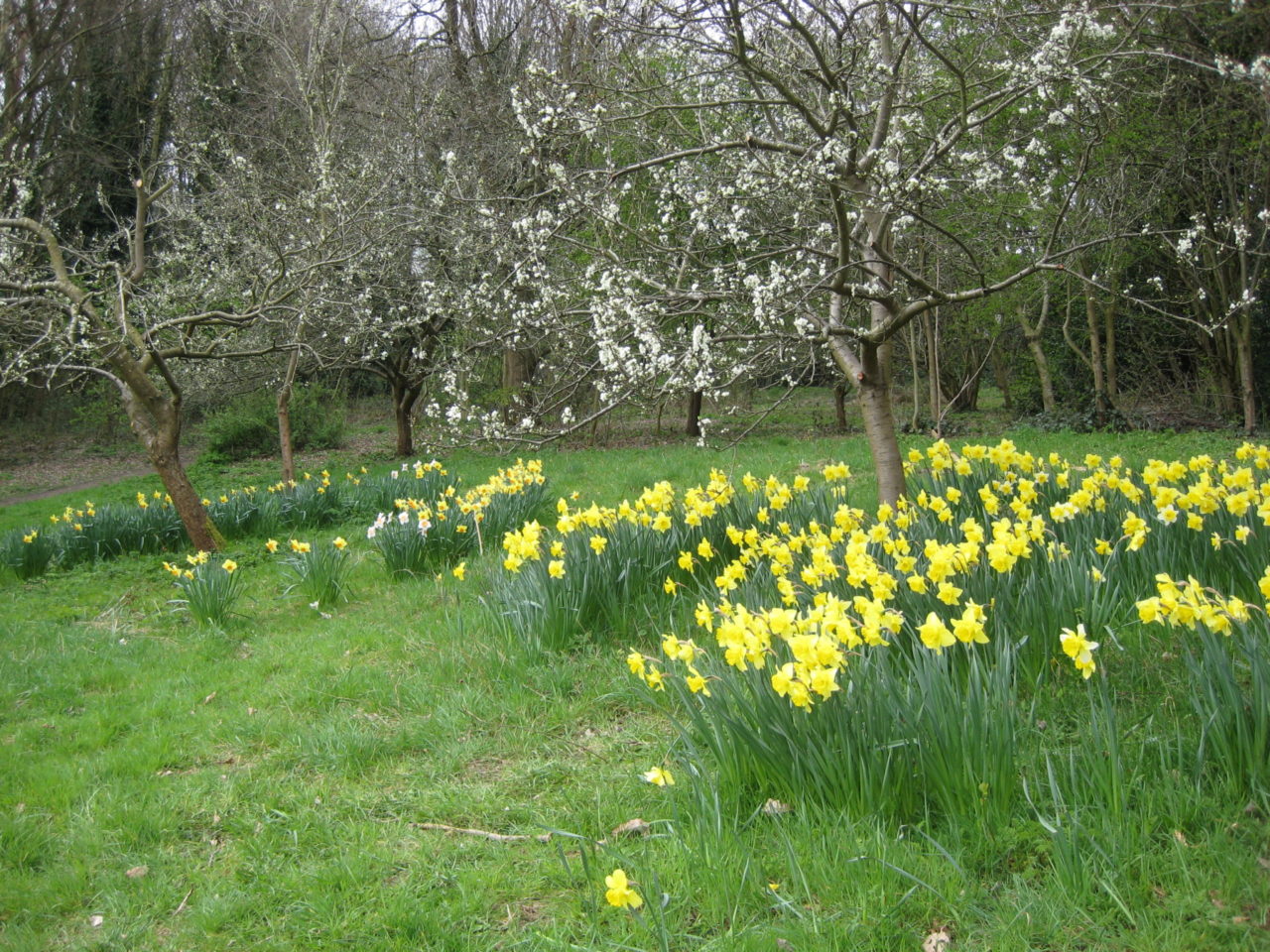
Watch this week's service on YouTube
Download the order of service here: 24 03 10 Mothering Sunday Eucharist
Read this week's Church News
The Readings
Colossians 3.12-17
As God’s chosen ones, holy and beloved, clothe yourselves with compassion, kindness, humility, meekness, and patience. Bear with one another and, if anyone has a complaint against another, forgive each other; just as the Lord has forgiven you, so you also must forgive. Above all, clothe yourselves with love, which binds everything together in perfect harmony. And let the peace of Christ rule in your hearts, to which indeed you were called in the one body. And be thankful. Let the word of Christ dwell in you richly; teach and admonish one another in all wisdom; and with gratitude in your hearts sing psalms, hymns, and spiritual songs to God. And whatever you do, in word or deed, do everything in the name of the Lord Jesus, giving thanks to God the Father through him.
Luke 2.33-35
And the child’s father and mother were amazed at what was being said about him. Then Simeon blessed them and said to his mother Mary, ‘This child is destined for the falling and the rising of many in Israel, and to be a sign that will be opposed so that the inner thoughts of many will be revealed—and a sword will pierce your own soul too.’
Scripture Quotations are from: New Revised Standard Version Bible: Anglicized Edition, copyright © 1989, 1995 National Council of the Churches of Christ in the United States of America. Used by permission. All rights reserved worldwide. http://nrsvbibles.org
The Sermon
By the Revd Canon James Wilson - to be added
The Prayers
Prepared by Veronica.
In the power of the Spirit and in union with Christ, let us pray to the Father.
Oh God, as we remember Mary, the mother of our Lord Jesus Christ, we ask that all of us, called to
be mothers, may follow her example of devotion to Him throughout his life on earth. She accepted
the great task to which she had been called, she cared for him throughout his childhood, and
remained with Him to the hour of his death, for her, no doubt a very distressing time. Help us to
remember the model of motherhood she set before us.
Lord, in your mercy,
Hear our prayer.
We pray for the world, and for all those places where there is war and conflict. We remember in
particular all the mothers who have lost their own lives in Israel, Gaza and Ukraine, or have lost their
children during those wars. We pray that all those conflicts will be resolved with the help of the
United Nations and other international bodies, so that all families may again live in peace and
harmony.
Lord, in your mercy,
Hear our prayer.
We pray for all families known to us where they are embarking on the gift of parenthood. Give all
mothers and fathers the patience and tolerance they are going to need, and the wisdom to bring up
their children in the way of love and caring for others.
Lord, in your mercy,
Hear our prayer.
We pray for our own mothers, whether still with us, or have passed on to your nearer presence. We
thank you for all they have meant to us, and pray that we may also pass on to our own children the
values they will need in their lives.
Lord, in your mercy,
Hear our prayer.
We remember all who are ill or unwell at this time. We ask you to be with them and help them to
cope with pain and illness, as they undergo medical treatment. We pray for their families and
medical staff that they are able to deal with the stress at this time. We keep a moment of silence to
think of them………..
Lord, in your mercy,
Hear our prayer.
We pray for all who have died, recently or many years ago, particularly our mothers and fathers who
are no longer with us. May they continue to live in our hearts and minds. Be with those who mourn
the loss of a loved one at this time as we think of those no longer with us…………
Lord, in your mercy,
Hear our prayer.
Rejoicing in the fellowship of Mary, Mark, John and all your saints, we commend ourselves and all
creation to your unfailing love.
Merciful Father,
Accept these prayers
for the sake of your only Son,
our Saviour Jesus Christ.
Amen.
Common Worship: Times and Seasons, material from which is used here is copyright (c) 2010 The Archbishops' Council
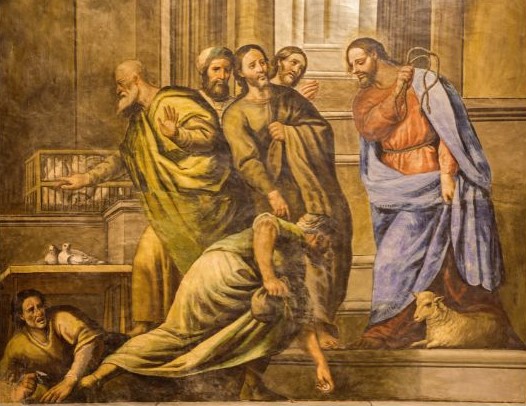
Watch this week's service on YouTube
Download the order of service here: 24 03 03 The Third Sunday of Lent Eucharist
Read this week's Church News
The Readings
1 Corinthians 1.18-25
For the message about the cross is foolishness to those who are perishing, but to us who are being saved it is the power of God. For it is written,
‘I will destroy the wisdom of the wise,
and the discernment of the discerning I will thwart.’
Where is the one who is wise? Where is the scribe? Where is the debater of this age? Has not God made foolish the wisdom of the world? For since, in the wisdom of God, the world did not know God through wisdom, God decided, through the foolishness of our proclamation, to save those who believe. For Jews demand signs and Greeks desire wisdom, but we proclaim Christ crucified, a stumbling-block to Jews and foolishness to Gentiles, but to those who are the called, both Jews and Greeks, Christ the power of God and the wisdom of God. For God’s foolishness is wiser than human wisdom, and God’s weakness is stronger than human strength.
John 2.13-22
The Passover of the Jews was near, and Jesus went up to Jerusalem. In the temple he found people selling cattle, sheep, and doves, and the money-changers seated at their tables. Making a whip of cords, he drove all of them out of the temple, both the sheep and the cattle. He also poured out the coins of the money-changers and overturned their tables. He told those who were selling the doves, ‘Take these things out of here! Stop making my Father’s house a market-place!’ His disciples remembered that it was written, ‘Zeal for your house will consume me.’ The Jews then said to him, ‘What sign can you show us for doing this?’ Jesus answered them, ‘Destroy this temple, and in three days I will raise it up.’ The Jews then said, ‘This temple has been under construction for forty-six years, and will you raise it up in three days?’ But he was speaking of the temple of his body. After he was raised from the dead, his disciples remembered that he had said this; and they believed the scripture and the word that Jesus had spoken.
Scripture Quotations are from: New Revised Standard Version Bible: Anglicized Edition, copyright © 1989, 1995 National Council of the Churches of Christ in the United States of America. Used by permission. All rights reserved worldwide. http://nrsvbibles.org
The Sermon
To be added
The Prayers
Prepared by Joe.
We pray for the Church of Christ, for Bishop Pete and Bishop Sophie,
our Archbishops Justin and Stephen, all here who lead us in worship
and prayer, and all those whose time and talents are given to St
Mary’s, St John’s and St Mark’s. We pray for those who lead your
Church in Gaza, the wider middle east and Ukraine.
Lord, hear us:
Lord graciously hear us.
Like Jesus in the Temple, may we be brave enough to do what is right
when we are called upon to do it.
And may we have faith in the power and wisdom of God to direct us
in our thoughts and actions.
Lord, hear us:
Lord graciously hear us.
We pray all those wounded, suffering, imprisoned and displaced in
Gaza, that the current crisis may be brought to a just and peaceful
conclusion. We pray for those who have died in this conflict, and the
wider conflicts in the Middle East. We pray for the people of Ukraine
and hope for a just and peaceful resolution to that conflict.
Lord, hear us:
Lord graciously hear us.
We pray for our community here in Walkley, and for the city of
Sheffield, and for our neighbours and friends. We keep in our
prayers those who are homeless at this time. We pray that during
this season we remember all those less fortunate than ourselves and
do what we can to support them.
We pray for those in politics and leadership; we pray that they act
and speak wisely with thought about the implications and possible
impact of what they say, and that they speak wisely and truthfully.
Lord, hear us:
Lord graciously hear us.
We pray for the aged and infirm, and those sick in mind, body or
spirit, and those who find life especially difficult at this time. We pray
that you bring them strength, healing, and peace. In a few moments
of silence, we think of those we know who need your healing
presence in their lives.
Lord, hear us:
Lord graciously hear us.
We pray for those currently close to death, and those accompanying
them on this final part of their Earthly journey. We pray for those
who have died, recently and in the past, and those who mourn.
Lord, hear us:
Lord graciously hear us.
Finally, Lord, we silently bring before you those special to us, and
those issues and concerns that we have in our own lives.
Lord, hear us:
Lord graciously hear us.
Rejoicing in the communion of Mary, Mark, John and of all the
Saints, let us commend ourselves, and one another, and all our life,
to God. Merciful Father: accept these prayers for the sake of your
Son, our Saviour, Jesus Christ.
Amen.
Common Worship: Times and Seasons, material from which is used here is copyright (c) 2010 The Archbishops' Council
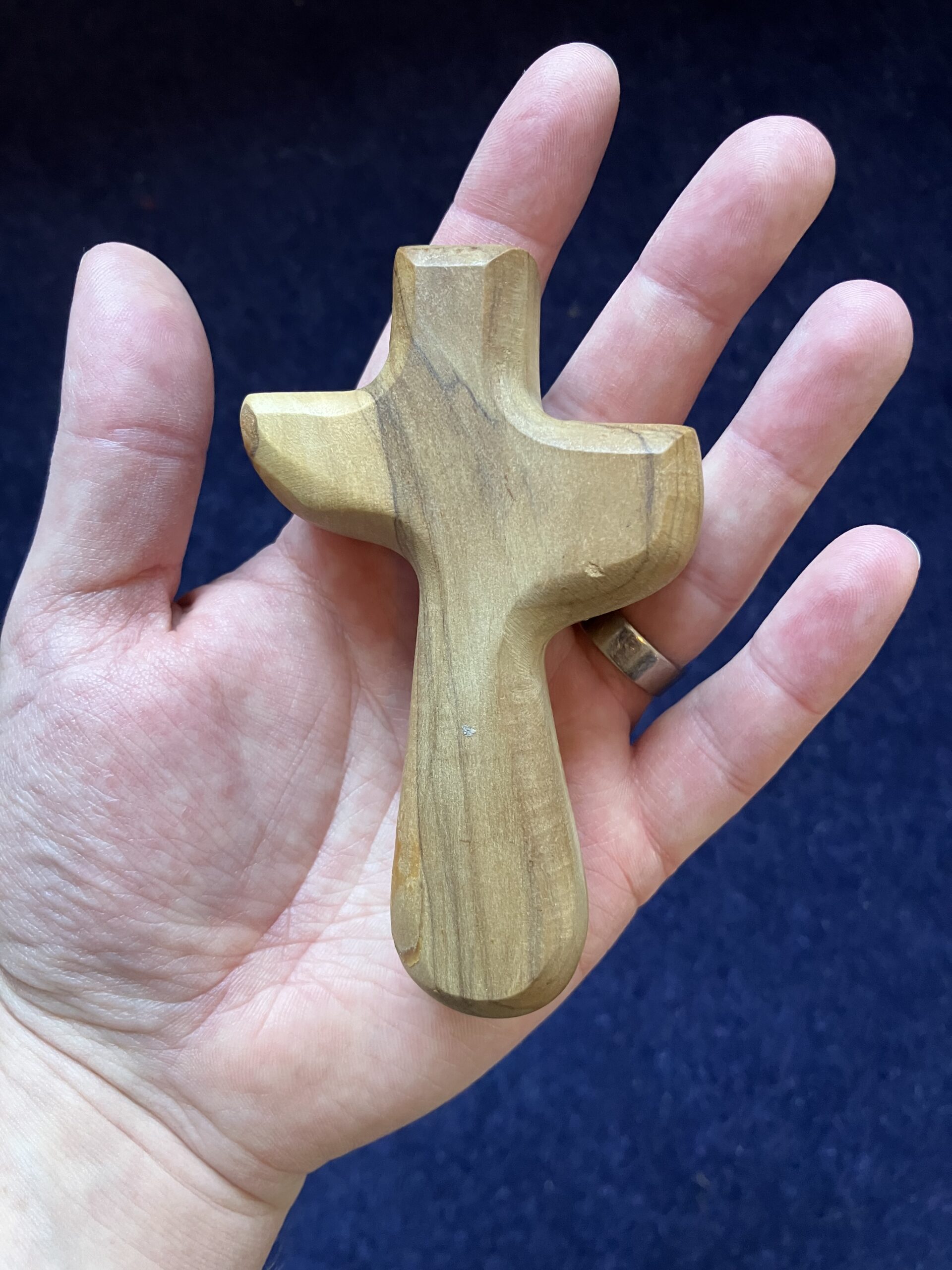
Watch this week's service on YouTube
Download the order of service here: 24 02 25 The Second Sunday of Lent Eucharist
Read this week's Church News
The Readings
Romans 4.13-25
For the promise that he would inherit the world did not come to Abraham or to his descendants through the law but through the righteousness of faith. If it is the adherents of the law who are to be the heirs, faith is null and the promise is void. For the law brings wrath; but where there is no law, neither is there violation. For this reason it depends on faith, in order that the promise may rest on grace and be guaranteed to all his descendants, not only to the adherents of the law but also to those who share the faith of Abraham (for he is the father of all of us, as it is written, ‘I have made you the father of many nations’)—in the presence of the God in whom he believed, who gives life to the dead and calls into existence the things that do not exist. Hoping against hope, he believed that he would become ‘the father of many nations’, according to what was said, ‘So numerous shall your descendants be.’ He did not weaken in faith when he considered his own body, which was already as good as dead (for he was about a hundred years old), or when he considered the barrenness of Sarah’s womb. No distrust made him waver concerning the promise of God, but he grew strong in his faith as he gave glory to God, being fully convinced that God was able to do what he had promised. Therefore his faith ‘was reckoned to him as righteousness.’ Now the words, ‘it was reckoned to him’, were written not for his sake alone, but for ours also. It will be reckoned to us who believe in him who raised Jesus our Lord from the dead, who was handed over to death for our trespasses and was raised for our justification.
Mark 8.31-38
Then he began to teach them that the Son of Man must undergo great suffering, and be rejected by the elders, the chief priests, and the scribes, and be killed, and after three days rise again. He said all this quite openly. And Peter took him aside and began to rebuke him. But turning and looking at his disciples, he rebuked Peter and said, ‘Get behind me, Satan! For you are setting your mind not on divine things but on human things.’ He called the crowd with his disciples, and said to them, ‘If any want to become my followers, let them deny themselves and take up their cross and follow me. For those who want to save their life will lose it, and those who lose their life for my sake, and for the sake of the gospel, will save it. For what will it profit them to gain the whole world and forfeit their life? Indeed, what can they give in return for their life? Those who are ashamed of me and of my words in this adulterous and sinful generation, of them the Son of Man will also be ashamed when he comes in the glory of his Father with the holy angels.’
Scripture Quotations are from: New Revised Standard Version Bible: Anglicized Edition, copyright © 1989, 1995 National Council of the Churches of Christ in the United States of America. Used by permission. All rights reserved worldwide. http://nrsvbibles.org
The Sermon
By Catherine, Reader at St Mary's.
“Preach with the Bible in one hand and a newspaper in the other!”
This advice is often given to preachers. Look at what’s in the news and then explore what insights the
Bible might be able to offer to situations in the world today.
This week’s news has focused on the death of the Russian opposition leader Alexei Navalny.
Navalny loved his country. He longed for a day when Russian people could prosper freely under a fair
democracy. A time without corruption. A day when you could safely disagree with those in power. He
spoke out. And he suffered. Having survived one assassination attempt, people urged him not to return to
Russia. But he thought it hypocritical to oppose the regime from the safety of somewhere else. So he
went back, was arrested, imprisoned, tried, convicted and sent to Siberia. And now he has died. Navalny
fought for truth and justice, put himself in danger...and paid the ultimate price.
I wonder if any of you, thought that today’s gospel reading seemed quite apt for this week’s news? What
might it have to say for this situation?
“Who do people say that I am?” Jesus has asked his disciples a few verses earlier.
“John the Baptist” they reply. “Or Elijah maybe – or one of the prophets”.
Understandable answers. Jesus has indeed been behaving very much like any one of these people.
“Who do YOU say that I am?” Jesus then asks.
Peter is quick to answer
“You are the Messiah!”
Jesus then orders them not to tell anyone. Why?
Life under Roman occupation is challenging. Its so-called “peace” is maintained by effective, but brutal
laws and a punitive tax system. Worship is permitted but heavily regulated. The prophets have told of a
Messiah who will rise up and defeat the oppressor. The people of Jesus’ time, including Peter and the
others, assume this Messiah will be a warrior, who will bring about God’s justice, defeating the Romans
through force, as did the kings of old.
Jesus, however, has quite a different understanding of “Messiah”. And it’s important that the disciples see
this understanding before they tell other people. Today’s reading is the first of three attempts by Jesus to
explain to them what being the Messiah really means.
The disciples don’t get it. A Messiah who will be arrested, tried, tortured and killed, who would then arise
again after three days? This does not compute. The first time they hear this teaching, Peter takes Jesus
aside and tries to argue with him. But Jesus rebukes him quite publicly, even calling him Satan. When
Jesus brings up the subject again a little further on in the gospel, none of the disciples dare to question
him. They are too scared.
What does Jesus mean by “Messiah”?
Last week we heard of how after his baptism, Jesus was then driven by the Holy Spirit into the
wilderness, where he stayed for forty days and was tempted by Satan. He then goes back to Galilee
preaching the good news of God. People should repent because God’s kingdom is near. Jesus
demonstrates this by healing the sick, driving out evil spirits, feeding the hungry and teaching with
authority. The Messiah is God in person, come among them, doing what God does.
Human kingdoms come and go. The Roman Empire is one such kingdom, it lasts for a while in time and
space. But God’s kingdom is outside time and space and for all eternity. But Jesus’ disciples can’t see
that yet. The religious authorities and Roman rulers can’t see it either. They see in Jesus a political and
religious agitator that must be stopped. The human kingdom will come into conflict with God’s eternal
kingdom. And Jesus knows this, which is why he foretells his suffering and death. And why he tells
anyone wishing to be his follower to expect the same treatment.
Alexei Navalny was not the Messiah. He was a human being, fighting against a brutal and unjust human
regime. He hoped to make a political difference in his country here and now. But like Jesus, Navalny
understood that sometimes you have to put your own life aside in order to try to make life better for
others. Like Jesus, he did this with seriousness, but also with humour. Like Jesus, he did this with love.
Jesus and Navalny knew they would suffer for their actions. But there’s one crucial difference - Jesus
also foretold that the Messiah would rise again after three days. And that it was only through his death
AND resurrection that God’s kingdom could fully come to pass. For you can’t keep God down.
The Prayers
Prepared by David - to be added shortly
In the power of the Spirit and in union with Christ, let us pray to the Father.
We pray for your world, for those places where human greed and corruption cause damage to the beauty of creation. We pray for those who suffer due to violence and hatred. We pray for peace, for understanding between peoples and a respect for your creation.
Lord of compassion,
in your mercy hear us.
We pray for your church, that it may faithfully witness to the gospel throughout the world. We pray for Pete and Sophie our bishops, our partner churches, St Marks and St Johns, and all who share our common life here at St Marys.
Lord of compassion,
in your mercy hear us.
We pray for our communities, for our homes and places of work, our schools and universities, our social networks and clubs. May they be places of welcome, hospitality and friendship. We pray for our community of Walkley, for our shared life together and for fruitful partnerships.
Lord of compassion,
in your mercy hear us.
We pray for those who suffer in body, mind or spirit. The ill, the lonely, the anxious and the depressed. We pray for knowledge of your presence alongside those who suffer. We give thanks for those who heal and care for others, for their skill and dedication.
Lord of compassion,
in your mercy hear us.
We pray for those who have died, those from our own lives who we have loved and see no longer, and those who have died in this past night with no one to pray for them. We give thanks that they lived and pray for those who mourn their loss.
Lord of compassion,
in your mercy hear us.
We pray for ourselves, for all that lies ahead in the coming week, help us to know you are with us throughout our daily lives.
Lord of compassion,
in your mercy hear us.
Merciful Father,
accept these prayers
for the sake of your Son,
our Saviour Jesus Christ.
Amen.
Common Worship: Times and Seasons, material from which is used here is copyright (c) 2010 The Archbishops' Council
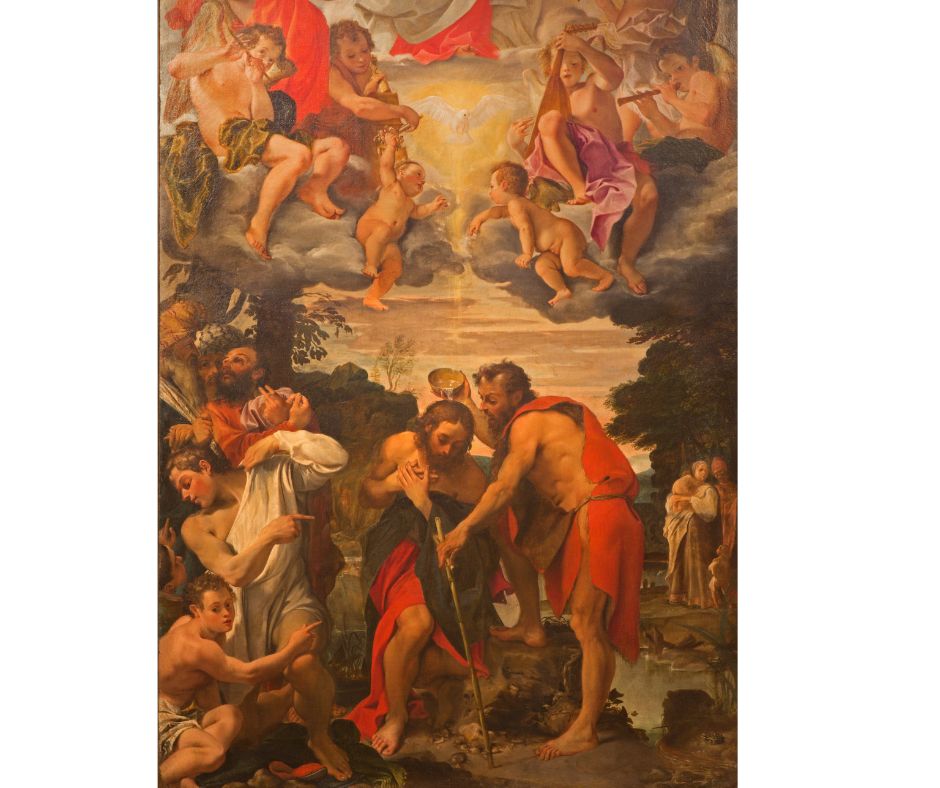
Watch this week's service on YouTube
Download the order of service here: 24 02 18 The First Sunday of Lent Eucharist
Read this week's Church News
The Readings
1 Peter 3.18-22
For Christ also suffered for sins once for all, the righteous for the unrighteous, in order to bring you to God. He was put to death in the flesh, but made alive in the spirit, in which also he went and made a proclamation to the spirits in prison, who in former times did not obey, when God waited patiently in the days of Noah, during the building of the ark, in which a few, that is, eight people, were saved through water. And baptism, which this prefigured, now saves you—not as a removal of dirt from the body, but as an appeal to God for a good conscience, through the resurrection of Jesus Christ, who has gone into heaven and is at the right hand of God, with angels, authorities, and powers made subject to him.
Mark 1.9-15
In those days Jesus came from Nazareth of Galilee and was baptized by John in the Jordan. And just as he was coming up out of the water, he saw the heavens torn apart and the Spirit descending like a dove on him. And a voice came from heaven, ‘You are my Son, the Beloved; with you I am well pleased.’
And the Spirit immediately drove him out into the wilderness. He was in the wilderness for forty days, tempted by Satan; and he was with the wild beasts; and the angels waited on him.
Now after John was arrested, Jesus came to Galilee, proclaiming the good news of God, and saying, ‘The time is fulfilled, and the kingdom of God has come near; repent, and believe in the good news.’
Scripture Quotations are from: New Revised Standard Version Bible: Anglicized Edition, copyright © 1989, 1995 National Council of the Churches of Christ in the United States of America. Used by permission. All rights reserved worldwide. http://nrsvbibles.org
The Sermon
By Kath, Reader at St Mary's.
To be added.
The Prayers
Prepared by Joe - to be added shortly
We pray for the Church of Christ, for Bishop Pete and Bishop Sophie,
our Archbishops Justin and Stephen, all here who lead us in worship
and prayer, and all those whose time and talents are given to St
Mary’s, St John’s and St Mark’s.
Lord, meet us in the silence:
give us strength and hear our prayer.
Lord, as we enter into the quiet and thoughtful Season of Lent, we
pray that we have the strength, patience and courage to give up
what really matters for Lent; anger, greed, hatred and turning our
backs on your teachings. We pray that through our Lenten discipline
we learn how to give ourselves to you and to your service in the
world. We pray for those preparing to enter the body of your Church
through Confirmation and Baptism at this time.
Lord, meet us in the silence:
give us strength and hear our prayer.
We pray all those wounded, suffering, imprisoned and displaced in
Gaza, that the current crisis may be brought to a just and peaceful
conclusion. We pray for those who have died in this conflict, and the
wider conflicts in the Middle East. We pray for the people of Ukraine
and hope for a just and peaceful resolution to that conflict.
Lord, meet us in the silence:
give us strength and hear our prayer.
We pray for our community here in Walkley, and for the city of
Sheffield, and for our neighbours and friends. We keep in our
prayers those who are homeless at this time. We pray that during
this season we remember all those less fortunate than ourselves and
do what we can to support them.
Lord, meet us in the silence:
give us strength and hear our prayer.
We pray for the aged and infirm, and those sick in mind, body or
spirit, and those who find life especially difficult at this time. We pray
that you bring them strength, healing, and peace. In a few moments
of silence, we think of those we know who need your healing
presence in their lives.
Lord, meet us in the silence:
give us strength and hear our prayer.
We pray for those currently close to death, and those accompanying
them on this final part of their Earthly journey. We pray for those
who have died, recently and in the past, and those who mourn.
Lord, meet us in the silence:
give us strength and hear our prayer.
Finally, Lord, we silently bring before you those special to us, and
those issues and concerns that we have in our own lives.
Lord, meet us in the silence:
give us strength and hear our prayer.
Rejoicing in the communion of Mary, Mark, John and of all the
Saints, let us commend ourselves, and one another, and all our life,
to God. Merciful Father: accept these prayers for the sake of your
Son, our Saviour, Jesus Christ.
Amen.
Common Worship: Times and Seasons, material from which is used here is copyright (c) 2010 The Archbishops' Council
